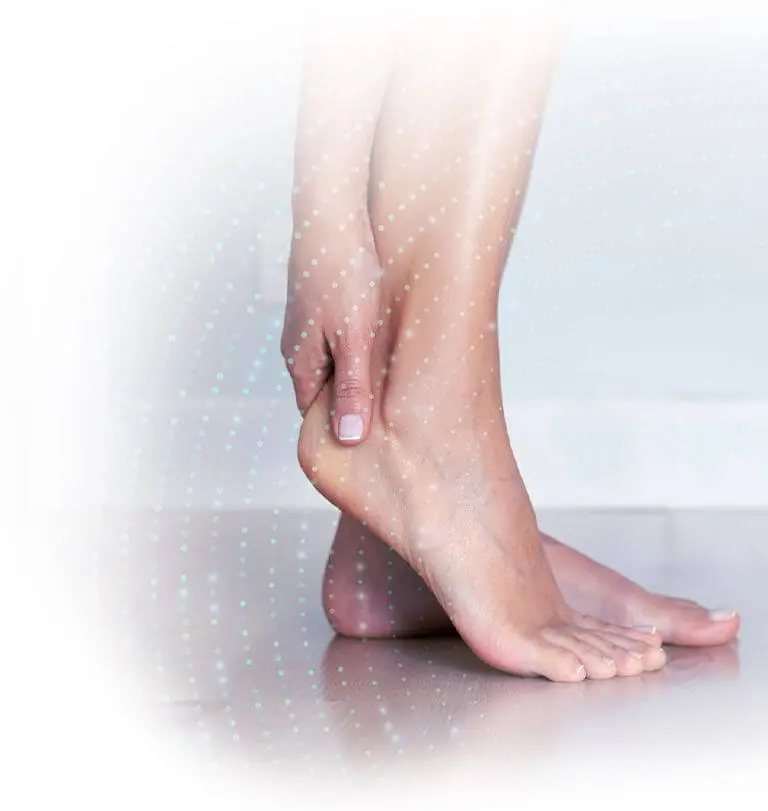High-risk conservative foot care refers to the type of care that is necessary for patients who are at a higher risk for developing foot and ankle problems. This type of care includes regular, comprehensive foot exams, as well as more frequent cleaning and treatment of minor issues as soon as they arise.
Patients who are considered high-risk may have diabetes, arthritis, or any other condition that can lead to an increased risk of foot or ankle problems. The board-certified doctors and other providers at the Foot & Ankle Institute of New England work closely with these patients to ensure that their feet are healthy and to prevent any further complications.
Foot Exams
For patients who are at high risk of developing foot or ankle problems, regular comprehensive foot exams at our clinic can help identify potential problems early and prevent them from becoming more serious.
By examining the feet and ankles for signs of injury, deformity, or disease, our foot and ankle doctor will provide the prompt treatment that can help improve the overall health of your feet and avoid further complications.
For patients who are already dealing with foot or ankle problems, regular examinations can help monitor the condition and ensure that it is not progressing. In addition, our foot and ankle doctors can provide advice on how to best take care of the feet and avoid further injury.

Shoe Fitting
Wearing shoes that fit properly is crucial for people with diabetes, as ill-fitting shoes can lead to several foot and ankle problems. That’s why professional, medical shoe fittings at our clinic is so important.
Wearing ill-fitting shoes can cause several problems for people with diabetes, including:
- Blisters: Ill-fitting shoes can rub against your skin, causing blisters.
- Calluses: Repeated rubbing can also lead to the formation of calluses.
- Corns: Corns are another type of callus that can form on your toes from ill-fitting shoes.
- Bunions: Ill-fitting shoes can also cause bunions, which are painful bumps that form on the side of your big toe.
All of these problems can make it difficult to walk and move around, as well as lead to further complications for people with diabetes. That’s why it’s so important to get a professional, medical shoe fitting at the Foot & Ankle Institute of New England. By getting fitted for shoes that fit properly, you can help prevent these problems and keep your feet healthy.
During a shoe fitting, our foot and ankle doctors will take a close look at your feet and assess your specific needs. They’ll then help you choose shoes that will provide the right support and fit comfortably. At the Foot & Ankle Institute of New England, we can assess your condition, measure you for appropriate footwear, and dispense Medicare-approved shoes, sneakers, and socks to you.
At-Home Foot Care
Self-care for your feet is important to helping prevent foot and ankle problems, especially for patients with diabetes. Diabetes can cause nerve damage and poor blood circulation, which can lead to serious foot problems. By taking care of your feet at home, you can help prevent these problems from getting worse.
Here are some tips:
- Daily inspection. Inspect your feet regularly, looking for any cuts, scrapes, bruises, blisters, or any other injuries. If you notice any injuries, seek medical attention immediately.
- Daily washing. Keep your feet clean and dry by washing them daily with soap and water. Dry your feet thoroughly, paying special attention to the spaces between your toes.
- Keep toenails trimmed. Trim your nails regularly and cut them straight across to avoid ingrown toenails.
- Comfortable shoes are key. Wear comfortable shoes that fit well and provide support for your feet. Wearing natural-material-made socks under your shoes is also necessary to avoid friction and scrapping. You may use orthotics, and avoid high heels and extremely tight shoes.
- Daily self-care. Stretch and massage your feet daily to improve circulation and flexibility.
- Elevate your feet. Elevate your feet, when possible, to increase the blood flow through the leg veins and prevent venous stasis.
- Compression footwear. Wear supportive socks or stockings to encourage adequate blood circulation to the feet to help prevent foot problems.
However, we always recommend seeing the experts at the Foot & Ankle Institute of New England if you have any concerns.
Conservative Foot Care in RI, MA
Do you have diabetes or are you otherwise at risk of developing foot or ankle problems? You can get the conservative foot care you need at the Foot & Ankle Institute of New England. Contact the office nearest you for more information. We have three convenient locations, in Warwick, Rhode Island, Middletown, Rhode Island, and Dartmouth, Massachusetts.
Or, if you prefer, you can use our online appointment request form now.

